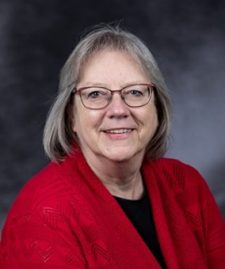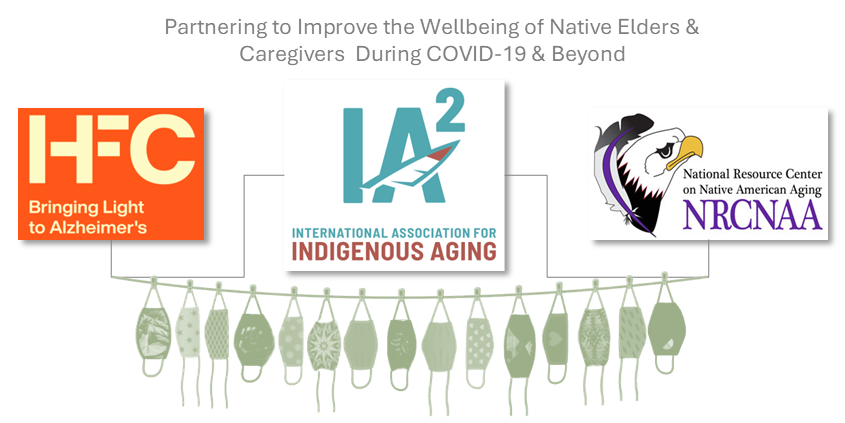Caregiving
Trainings
Past Trainings
Support Group Facilitator Training
Date: December 14, 2021
Time: 1:00pm – 4:00pm Pacific Time
Description: Alzheimer’s Los Angeles Support Group Facilitator Training is for persons interested in becoming a facilitator of a dementia-specific support group. Professionals and lay people are welcome. This course provides a discussion of the purpose and value of support groups, information on starting and maintaining a support group as well as an understanding of group dynamics and the group process.
Objectives:
After attending this course, the participant will know:
- The purpose of a support group
- How to start a group
- How to market and maintain a support group
- How to manage group dynamics and facilitate the group process
Presenters: Zina Paris, MSW, Director of Clinical Services, Alzheimer’s Los Angeles
Anne Oh, MSG, Manager of Support Groups and Activity Programs, Alzheimer’s Los Angeles
To Register: Call Anne Oh, Manager of Support Groups and Activity Programs, at (323) 930-6271 or, email the following information to [email protected].
- Date
- Name
- Facility
- Job Title
- Address
- Phone
Questions:
Native Elder Caregiving: A Training for Family and Friends
Date: December 15, 2021
Time: 3:00 – 5:00 pm Eastern Time
Objectives:
At the conclusion of this training attendees will:
- Understand common physical changes that can occur during the aging process
- Obtain basic knowledge of diseases associated with system changes during the aging process
- Identify helpful strategies when caring for an older adult
Presenter: Dr. Karen Semmens, DNP, RN, GCNS-BC, NECC Trainer, University of North Dakota, National Resource Center on Native American Aging
Register at:
Questions:


The International Association for Indigenous Aging (IA2) participated in 2021 in a grant project funded by the CDC Foundation. The grant supports a rapid implementation direct service project developed in partnership with HFC and the University of North Dakota’s National Resource Center for Native American Aging (NRCNAA).
The National Resource Center on Native American Aging (NRCNAA) team, led by Dr. Collette Adamsen, will train tribal Community Health Representatives and aging services staff on their Native Elder Caregiver Curriculum (NECC). The curriculum is notably one of only two interventions specific to the American Indian caregivers. Curriculum development was guided by work with local tribal communities and mindfulness of the historically rich traditions and strengths of American Indians.
Trainings will cover four modules from the Native Elder Caregiver Curriculum. The Native Elder Caregiver Curriculum (NECC) has been designed as a tool to assist caregivers who have the responsibility of caring for their elders. The NECC curriculum focuses on topics that have been identified by elders and caregivers in rural Tribal communities as being useful in the provision of community‐based elder‐care.
Each 4-hour training will be offered twice in the month of October. It is not mandatory to attend both trainings.
Normal Age-Related Changes & Health Disparities
Option 1: October 13th 12:00 pm – 4:00 pm eastern
Option 2: October 14th 3:00 pm – 7:00 pm eastern
OBJECTIVES
1. Identify common changes that can occur during the aging process
2. Identify reasons for biologic changes during aging
3. Obtain basic knowledge of disease associated with system changes during the aging process
4. Better understand health disparities
5. Identify common diseases that elderly American Indian people experience more often than the general population
6. Identify community strategies that can help to reduce rates of chronic disease in American Indian populations
Living with Chronic Conditions & Health Promotion & Healthy Habits
Option 1: October 20th 12:00 pm – 4:00 pm eastern
Option 2: October 21st 3:00 pm – 7:00 pm eastern
OBJECTIVES
1. Identify the most common chronic diseases experienced by American Indian Elders.
2. Learn about common chronic health conditions that many elderly live with on a day-to-day basis.
3. Learn to focus on the “care” of the person with the chronic health condition, when a “cure” is not possible.
4. Discuss treatment and interventions available for chronic health conditions.
5. Know the meaning of health promotion
6. Recognize healthy habits
7. Identify simple ways to incorporate health promotion and healthy habits into everyday living for elderly and caregivers

Continuing Education Credits (Social Work): Department of Geriatrics, UND is a board-approved provider as approved by the North Dakota Board of Social Worker Examiners. This Live activity is approved for a maximum of 8 contact hours. Social Workers can claim this credit upon participation in the live session and completion of the mandatory evaluation form following the program.

